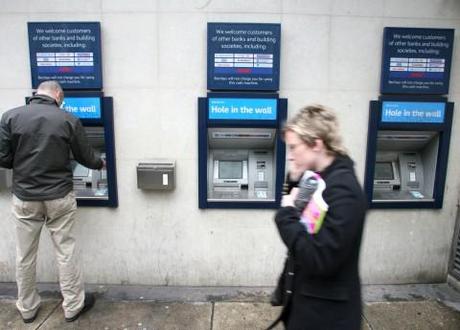 A branch of Barclays. Photocredit: Barclays
A branch of Barclays. Photocredit: Barclays
The background
Chief executive of Barclays Bank, Bob Diamond, is being pressured to resign, after the bank was fined £290 million. The penalty comes from the bank trying to manipulate the interest rates that control loans between banks. The misconduct surrounds the London Interbank Offered Rate (Libor) and the Euro Interbank Offered Rate (Euribor), which are important interest rates that have a direct influence on the trillions of dollars that are exchanged between banks. Basically, the bank lied about what it cost itself to borrow. However, it’s not yet clear whether the bank actually managed to affect the interest rates. Martin Taylor, a former chief executive, says that the actions of the bank are little more than “systematic dishonesty,” quoted on the BBC. Diamond and other executives are foregoing their bonuses this year in response to the fine. The bank admitted misconduct over a five year period.
The investigation by the Financial Standards Authority found that traders at the bank lied in order to make the bank seem more secure during the financial crisis, and sometimes worked with other traders at other banks to profit themselves. Other banks are being investigated, such as Citigroup, JP Morgan, Deutsche Bank, HSBC and Royal Bank of Scotland, reported the BBC. Commentators say that it throws the financial sector into more disrepute.
“This is the most corrosive failure of moral behavior I have seen in a major UK financial institution in my career,” said Lord Myners, the former City minister, quoted on the BBC.
The manipulation matters a lot
Robert Peston on the BBC said that it mattered a lot, because lots of Barclays clients used the data it was giving to “determine the profit and loss on their own deals.” So the bank lied about what it cost to borrow, which then became “a benchmark for pricing other deals.” There will no doubt be other fines.
What Bob Diamond said
Bob Diamond said, quoted on Southwestbusiness, that he was “sorry that some people acted in a manner not consistent with our culture and values. The events which gave rise to today’s resolutions relate to past actions which fell well short of the standards to which Barclays aspires in the conduct of its business. Nothing is more important to me than having a strong culture at Barclays.”
“Done … for you big boy”; an internal email from a trader, referring to the interest rate fixing.
The buck should stop with Diamond
The bank’s internal controls were “inadequate,” said Nils Pratley on The Guardian. Its actions could have threatened the entire UK financial system. That Diamond is simply waiving his bonus is “woefully inadequate.” There’s no suggestion that Diamond, or any other executive, was aware of what was going on. But the buck should “stop at the top” when the bank’s been damaged so badly.
Banks should obey the rules
The nature of this misdemeanour is “so fundamental,” fumed a Guardian editorial, that the fine even seems “inadequate.” The scam would ultimately have affected “how much families pay on their tracker mortgates.” There should be “further investigation into Barclays.” What’s worse is how the staff even joked about it. This is a bank, don’t forget, that is supported by taxpayers. This will only make the public hate bankers more, said Alex Brummer in The Daily Mail. There ought to be a full “Leveson-style judicial inquiry,” and “those who brought the economy crashing down” should be held accountable.
Does this affect your mortgage?
“Only certain mortgages are directly linked to Libor,” said Emma Simon on The Telegraph, ”but the rate does have an impact on the pricing of new short-term mortgages.” She quoted Adrian Anderson, director of mortgage broker Anderson Harris: ‘The pricing of Libor has an impact on the rates offered by lenders on short-term variable rate mortgages, such as two-year base rate trackers. When three-month Libor falls, the pricing on new base-rate trackers usually falls and similarly, when Libor rises, so too does the pricing of trackers. Other factors also come into play but the effect of Libor’s pricing is significant.”

